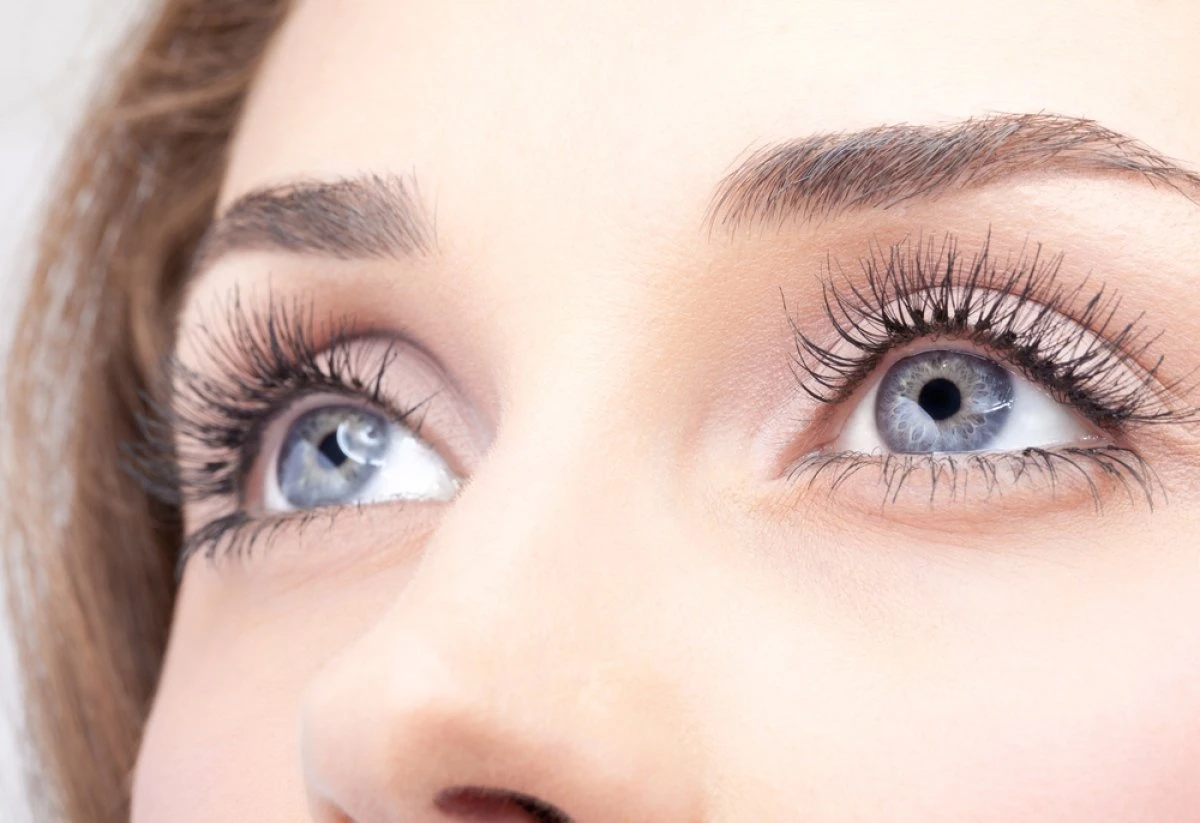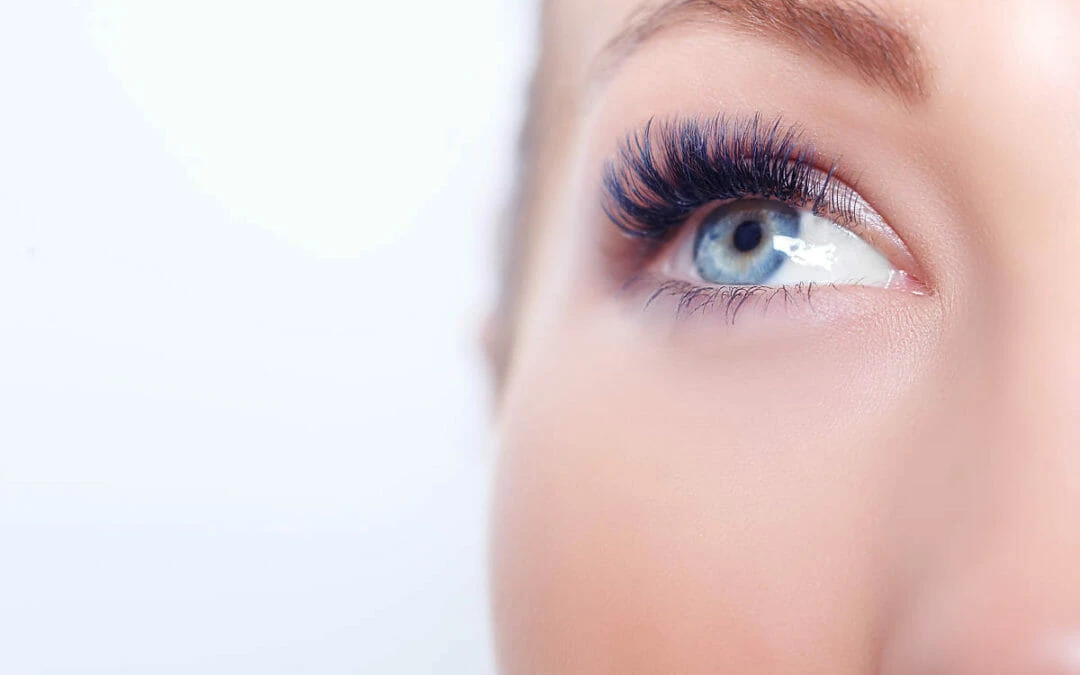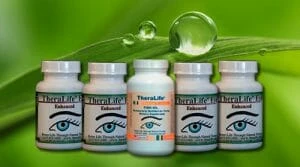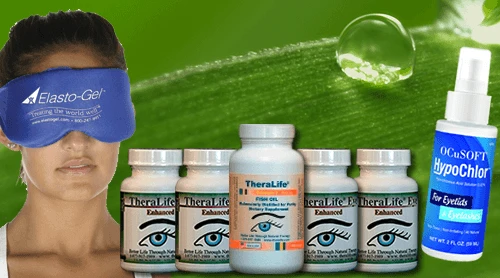Harnessing Nature’s Power: Uveitis Treatment Through Natural Remedies
Uveitis is a condition of the eye characterized by inflammation and can lead to serious vision impairment if left untreated. While traditional methods such as surgery, medications, and laser treatments are available for treating uveitis, natural remedies may provide an alternative form of treatment for those looking for more holistic approaches to managing this condition.
This article explores harnessing nature’s power through various natural remedies that have been used in order to treat it. The use of natural medicines has grown dramatically over time due to their accessibility, affordability and efficacy when dealing with certain ailments. Studies have shown that some plants possess anti-inflammatory properties which could be beneficial in reducing symptoms associated with uveitis including redness, pain, light sensitivity and blurred vision.
Additionally, various nutritional supplements may also be useful in controlling inflammation within the eye. Through exploring these options it is possible to gain insight into how harnessing nature’s power might help manage the symptoms associated with it.
Overview Of Uveitis
Uveitis is an inflammatory eye condition characterized by pain, redness, and light sensitivity. It can affect any part of the its tract including the iris, ciliary body and choroid layer.
The exact cause of this condition remains unknown; however, it has been linked to autoimmune diseases such as multiple sclerosis or rheumatoid arthritis. While traditional treatments for uveitis usually involve steroid therapy or immunosuppressive medications, many sufferers are turning towards natural remedies in order to avoid potential side effects associated with these medical interventions.
Exercise therapy and lifestyle changes are two ways in which individuals can manage their symptoms naturally. Exercise strengthens the immune system and helps reduce inflammation while healthy lifestyle habits such as maintaining a balanced diet and getting adequate rest can also help improve overall health and well-being.
Additionally, engaging in relaxation techniques like yoga or meditation may be beneficial for those suffering from stress or anxiety related to chronic illness. Given that there is no known cure for it, utilizing natural approaches may provide some relief without compromising one’s overall health.
Exploring various holistic therapies can enable patients to find the best treatment plan tailored to their individual needs – ultimately leading them on a path towards improved quality of life.
Exploring Natural Remedies
Herbal remedies have been used as a form of treatment for centuries, and are gaining popularity again in modern times.
Essential oils, which are derived from plants, have been found to have anti-inflammatory and antiviral properties, making them a valuable addition to natural treatments.
Research into the efficacy of herbal remedies and essential oils in the treatment of uveitis is ongoing, and is demonstrating promising results.
Through an understanding of how nature can be used to support and heal, natural remedies offer an alternative approach to treating it and other disorders.
Best Natural Therapy for Uveitis – TheraLife
Herbal Remedies
The treatment of uveitis has long been a controversial subject, especially when it comes to natural remedies.
Herbal remedies have become increasingly popular for their potential to reduce inflammation and provide relief from the symptoms.
Yoga therapy, lifestyle changes and other forms of alternative medicine that focus on relaxation techniques can be helpful in managing its conditions.
It is important to understand that herbal remedies are not always safe or effective and should only be used under the guidance of an experienced practitioner.
Additionally, many herbs interact with prescription medications so close monitoring by a doctor is necessary for optimal results.
Patients may experience both short-term benefits as well as long-term improvement if they adhere to a specific regimen tailored specifically for them.
With proper consultation and education about these treatments, sufferers will find themselves better equipped to make informed decisions regarding their health care needs.
Essential Oils
Essential oils have been used for centuries to promote wellness and healing, particularly in the realm of natural medicine. They are becoming increasingly popular as a means to boost immunity, reduce stress levels and improve overall health. The key is finding an essential oil that is best suited for individual needs.
Many different types exist ranging from anti-inflammatory varieties such as ginger and eucalyptus to those with calming effects like lavender or chamomile. In order to maximize their potential benefits, it is important to use them safely by diluting them properly before applying topically or inhaling through aromatherapy diffusers.
Additionally, one should always seek advice from a qualified healthcare professional when using any type of essential oil or supplement. With proper guidance and education about these treatments, sufferers can equip themselves with the knowledge they need to make informed decisions regarding their health care needs.
Herbal Medicines For Uveitis
Nature’s power is a mysterious force that has long been harnessed to treat uveitis with natural remedies. From herbal medicines, lifestyle changes and even the mind-body connection, there are many powerful ways to help reduce inflammation in its sufferers.
Herbal medicines have gained much attention as an effective way of treating uveitis without having to rely on pharmaceuticals:
1. **Ginger** – Ginger has anti-inflammatory properties which can be beneficial for reducing inflammation associated with uveitis.
2. **Turmeric** – Turmeric is used in traditional medicine for its anti-inflammatory effects and antioxidant benefits.
3. **Eyebright** – Eyebright extract helps to reduce eye irritation and redness caused by conditions like uveitis.
By combining these herbs together into teas or tinctures, they can provide relief from the symptoms of this condition while also providing other health benefits such as improved digestion and circulation.
Lifestyle changes are another important factor when it comes to managing your symptoms naturally. Making small adjustments such as getting regular exercise, eating healthy foods, avoiding triggers such as stress, and maintaining a positive mindset are all key components in achieving better overall health and well being – something that is especially important for those living with this chronic illnesses.
Additionally, paying closer attention to the mind-body connection can help individuals become more aware of their own bodies and how various emotions might affect their physical symptoms so that proper care may be taken accordingly.
With a combination of herbal medications, lifestyle modifications, and mindful practices tailored specifically for each individual’s unique needs; natural treatments can often yield successful results in managing the pain and discomfort related to this condition over time without relying solely on pharmaceuticals or surgery – paving the way towards greater healing potential through holistic approaches to healthcare moving forward .
As we continue our journey towards understanding nature’s power further, let us now turn our focus toward nutritional supplements for uveitis treatment options next…
Nutritional Supplements For Uveitis
Nutritional supplements may be beneficial for those with uveitis as dietary changes and lifestyle modifications can support the body’s natural healing process.
There is evidence to suggest that certain vitamins, minerals, and herbs have anti-inflammatory properties which could help reduce pain associated with the condition.
For example, omega-3 fatty acids found in fish oil are known to promote healthy immune system functioning while curcumin derived from turmeric has been shown to reduce inflammation throughout the body.
In addition, antioxidants such as Vitamins C and E provide protection against oxidative damage caused by free radicals which can contribute to tissue damage over time.
Research suggests that Vitamin A helps protect against infection and improves vision impairments related to eye diseases like uveitis while zinc deficiency may lead to an increased risk of developing some autoimmune disorders including uveitis.
Therefore, it is important for individuals seeking treatment options for uveitis to consider supplementing their diet with these nutritional compounds as part of a comprehensive approach towards improving overall health and well being.
Transitioning into acupuncture treatments for uveitis highlights yet another avenue through which people can actively take control of managing their symptoms in a safe and effective manner.
Acupuncture For Uveitis
Recent studies have shown that acupuncture may be a viable treatment option for uveitis. In one study, patients with chronic inflammation of the eyes reported significant improvement in their symptoms following 12 weeks of acupuncture treatment. This is an encouraging statistic as it demonstrates the potential impact of this ancient healing practice on conditions like uveitis.
Acupuncture can be paired with other natural treatments such as biofeedback therapy and meditation to help reduce inflammation from uveitis. Biofeedback therapy teaches individuals how to control involuntary bodily functions using techniques such as deep breathing or visualization exercises that increase awareness about physical changes occurring within their bodies. Meditation also helps relieve stress which has been known to cause flare-ups in many cases of uveitis.
In addition to these therapies, there are various herbal remedies believed to reduce inflammation associated with uveitis while supporting overall eye health:
1. Bilberry extract: A powerhouse antioxidant found in blueberries, bilberry extract contains high levels of anthocyanosides which research suggests provides anti-inflammatory benefits for the eyes and retina
2. Lycium barbarum fruit (Goji berries): This Chinese medicinal herb helps improve blood circulation in the eyes and offers protection against free radicals
3. Curcumin: The active ingredient in turmeric, curcumin is thought to protect cells from damage caused by oxidative stress and balance inflammatory responses throughout the body
By pairing traditional treatments like acupuncture with specific nutritional supplements and herbs, those suffering from uveitis can try a holistic approach towards managing their condition without relying solely on conventional medications or surgery.
Moving forward then, aromatherapy could offer yet another layer of support for reducing pain and discomfort related to this eye disorder.
Aromatherapy For Uveitis
Aromatherapy is an alternative treatment for uveitis, which has been gaining popularity in recent years. It involves the use of essential oils and aromatic plant extracts to stimulate certain senses such as smell and sight with a view to inducing relaxation and helping relieve symptoms related to uveitis. Aromatherapy can be used alone or combined with other therapies such as yoga therapy, hypnosis therapy and homeopathy.
The main goal of aromatherapy is to help reduce stress levels within the body by promoting feelings of calmness and well-being through inhalation or topical application of essential oils extracted from various plants. Research suggests that when applied topically, these potent compounds may have anti-inflammatory properties that could potentially provide relief from some of the common symptoms associated with uveitis, including redness, pain and blurred vision.
In addition, research also suggests that inhaling certain essential oil scents may have positive effects on moods, reducing anxiety and depression. When using aromatherapy for treating uveitis it is important to do so under the guidance of a trained healthcare professional who is knowledgeable about its safe usage. Essential oils are highly concentrated substances so their correct dilution must be taken into consideration before being administered for therapeutic purposes.
Furthermore, although most essential oils pose few risks if used properly there are some exceptions, so taking advice from a qualified practitioner will ensure that they are used safely while still providing maximum benefit. Transitioning now towards homeopathy for uveitis; this holistic approach uses natural remedies derived from plants and minerals to treat physical ailments without causing any side effects.
Homeopathy For Uveitis
Homeopathy is a holistic approach to health care that seeks to treat the root cause of an illness or condition and promote wellness. This form of natural medicine has been used for centuries as a way to stimulate healing on physical, mental, emotional, spiritual, and social levels. Homeopathic remedies are derived from natural substances such as plants and minerals, which have been specially prepared in order to maintain their medicinal properties while making them safe for consumption.
In regards to uveitis treatment, homeopathy utilizes various techniques such as biofeedback therapy and meditation techniques. Biofeedback therapy can help reduce inflammation by teaching patients how to consciously control certain physiological responses associated with uveitis symptoms. Meditation helps those dealing with chronic pain and stress related to uveitis manage their emotions more effectively through relaxation exercises.
Some common homeopathic treatments used for uveitis include natrum muriaticum, arsenicum album, bryonia alba, belladonna and apis mellifica. These medicines can be found in many forms including powders, tablets, capsules and topical preparations like ointments and creams.
When selecting a remedy it is important to remember that each person’s needs may vary so consulting a qualified practitioner is recommended before beginning any type of self-treatment program.
With these considerations in mind, it is clear that homeopathy offers a promising alternative for treating uveitis without relying solely on pharmaceutical drugs or invasive surgeries. Moving forward into the discussion on ayurvedic medicine for uveitis will deepen our understanding of this multifaceted approach towards restoring balance within the body naturally.
Ayurvedic Medicine For Uveitis
Nature’s incredible power often reveals itself in the form of natural remedies for ailments, including uveitis. Ayurvedic medicine is a holistic system of health and healing that uses various therapeutic techniques such as yoga therapy, hydrotherapy, and herbal treatments to reduce inflammation and improve overall health. It has been used for centuries with remarkable success in treating chronic diseases like uveitis.
Ayurvedic philosophy emphasizes prevention over cure by focusing on lifestyle changes such as diet, exercise, meditation, breathing exercises, massage therapies, and stress management. Yoga therapy helps with relaxation by encouraging flexibility and strength while stimulating the flow of energy throughout the body; it also reduces anxiety levels which can contribute to uveitis flare ups.
Similarly, hydrotherapy works by boosting circulation through warm water baths or compresses applied gently around the affected area to soothe pain and discomfort associated with uveitis. Herbal medicines are also an important part of ayurveda; they help eliminate toxins from the blood stream while providing relief from symptoms caused by uveitis.
The effectiveness of ayurvedic treatment lies in its comprehensive approach to health care. By combining physical practices such as yoga therapy and hydrotherapy with dietary adjustments and herbal medicines tailored specifically to each person’s individual needs, this ancient practice is capable of bringing about lasting change in patients suffering from autoimmune disorders like uveitis.
Thus, when used correctly ayurveda provides an effective way to manage symptom flares without relying too heavily on pharmaceutical drugs.
Frequently Asked Questions
What Are The Potential Side Effects Of Using Natural Remedies For Uveitis?
When considering the use of natural remedies for uveitis, potential side effects should be taken into account.
Alternative therapies, such as herbal supplements, can have unpredictable consequences depending on the individual and their particular health history or conditions.
Possible adverse reactions to these treatments may include nausea, diarrhea, headaches and dizziness in some cases.
It is important to consult with a medical professional before starting any alternative therapy so that they can assess whether it is safe for your specific situation.
Is It Possible To Prevent The Recurrence Of Uveitis?
When considering preventative strategies for the recurrence of uveitis, dietary changes may be beneficial. Research has identified certain foods and food components that can trigger inflammation in individuals suffering from uveitis.
By avoiding these items and replacing them with fresh fruits, vegetables, whole grains, lean proteins and healthy fats, it may be possible to reduce the risk of recurrent episodes of this condition. Additionally, nutritional supplements such as omega-3 fatty acids have been found to help lessen the severity of symptoms when taken regularly.
It is important to note that more research is needed in order to determine if a specific diet or supplement protocol can effectively prevent recurrent bouts of uveitis.
Are Natural Remedies Safe For Children With Uveitis?
The safety and efficacy of natural remedies for uveitis in children is an important consideration.
Holistic therapies such as dietary changes, supplementation with vitamins and minerals, acupuncture and homeopathy have been used to treat many conditions related to the eye including uveitis in both adults and children.
However, it is essential that parents consult their pediatrician or ophthalmologist before attempting any holistic treatment plan for a child with uveitis.
Herbal remedies are available but may be contraindicated due to possible side effects or interactions with other medications.
In general, natural treatments offer fewer side effects than conventional drug therapy; however, careful supervision by a trained healthcare professional should always be sought when using these methods for treating childhood uveitis.
Are There Any Lifestyle Changes That Can Help To Reduce The Symptoms Of Uveitis?
In an ironic twist, the same natural forces that help us to maintain our health can also be used to treat ailments.
Uveitis is one such condition where lifestyle changes like dietary modifications and stress management may reduce symptoms associated with this eye disorder.
Dietary modifications include decreasing intake of foods high in fat or sugar, as well as avoiding processed food products and increasing consumption of fresh fruits and vegetables.
Stress management techniques are beneficial for overall well being; they may involve deep breathing exercises, yoga or meditation.
By taking a holistic approach to uveitis treatment through natural remedies, individuals may experience long-term relief from their symptoms.
How Much Time Does It Typically Take For Natural Treatments To Be Effective In Treating Uveitis?
Dietary changes and stress management are two natural treatment methods that may be effective in treating uveitis.
While the exact amount of time it takes for these treatments to take effect can vary depending on the severity of symptoms, some patients have reported improvement within a few weeks or months of implementing lifestyle modifications.
Natural remedies require dedication and consistency in order to achieve results.
Therefore, patience is essential when trying to manage uveitis with dietary changes and other forms of stress management.
Conclusion
The use of natural remedies for uveitis has been gaining attention in recent years, as many individuals seek alternatives to traditional medical treatments.
With the right lifestyle changes and an understanding of how certain natural remedies interact with one another, it is possible to reduce the symptoms and prevent recurrence of this condition.
‘An ounce of prevention is worth a pound of cure’; taking preventive measures such as reducing stress levels and eating a balanced diet can go a long way towards controlling uveitis.
Natural remedies should be used with caution, however; discussing their potential side effects and safety for children should always occur before beginning any treatment plan.
Through careful research and consultation with experts, those suffering from uveitis may find relief through harnessing nature’s power.
References
- Trusko B, Thorne J, Jabs DA, Belfort R, Dick A, Gangaputra S, Nussenblatt R, Okada A, Rosenbaum J. The Standardization of Uveitis Nomenclature (SUN) Project. Development of a clinical evidence base utilizing informatics tools and techniques. Methods Inf Med 2013;52:259-65.
- Jabs DA, Dick A, Doucette JT, Gupta A, Lightman S, McCluskey P, Okada AA, Palestine AG, Rosenbaum JT, Saleem SM, Thorne JE, Trusko B, for the Standardization of Uveitis Nomenclature Working Group. Interobserver agreement among uveitis experts on uveitic diagnoses: The Standardization of Uveitis Nomenclature experience. Am J Ophthalmol 2018;186:19-24.
- The Standardization of Uveitis Nomenclature Working Group. Development of classification criteria for the uveitides. Am J Ophthalmol 2021; in press. Journal Pre-Proof Published online: April 9, 2021
- The Standardization of Uveitis Nomenclature Working Group. Classification criteria for cytomegalovirus anterior uveitis. Am J Ophthalmol 2021; in press. Journal Pre-Proof Published online: April 9, 2021
- The Standardization of Uveitis Nomenclature Working Group. Classification criteria for herpes simplex virus anterior uveitis. Am J Ophthalmol 2021; in press. Journal Pre-Proof Published online: April 8, 2021





